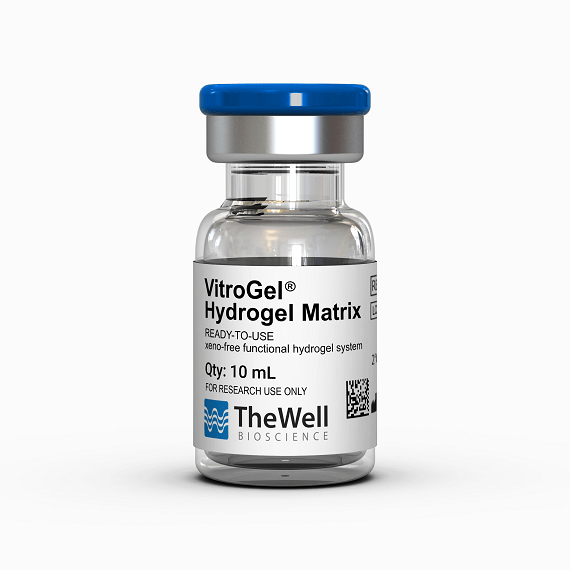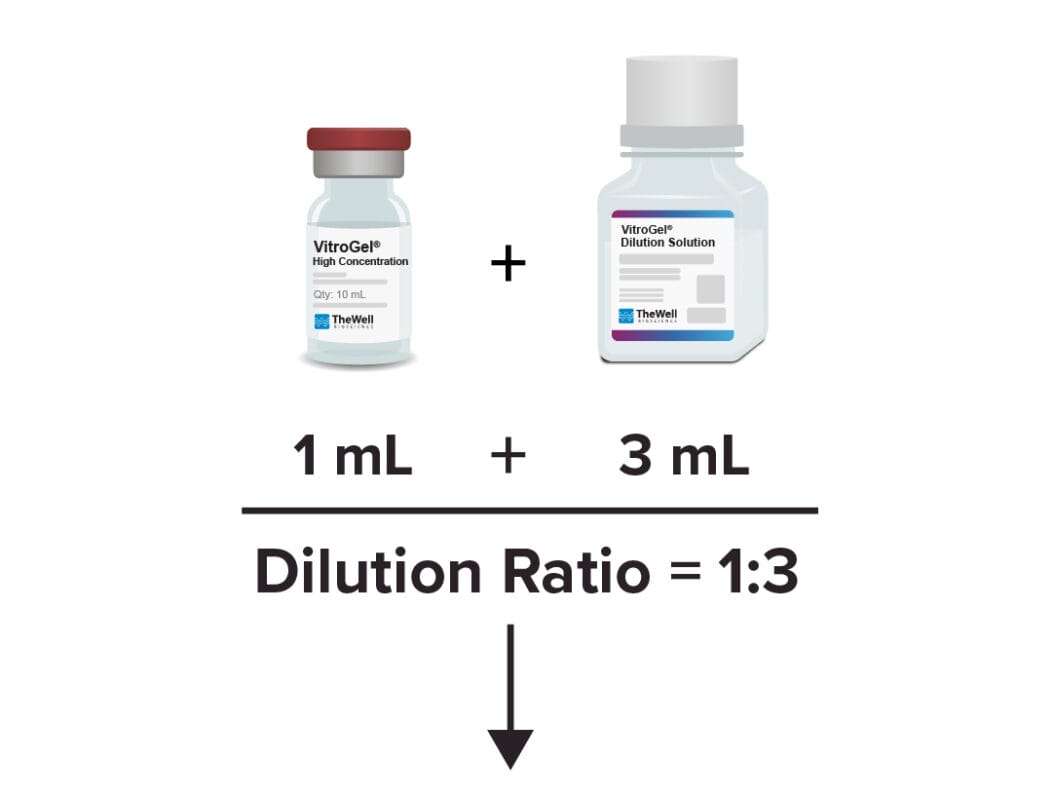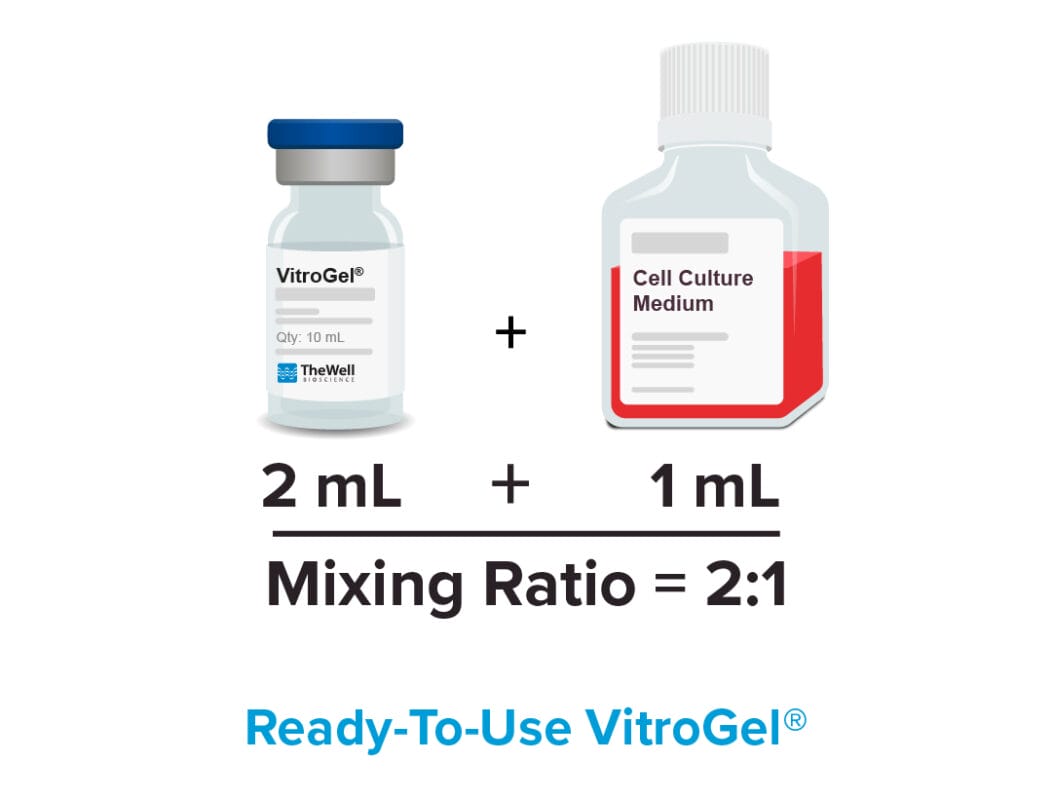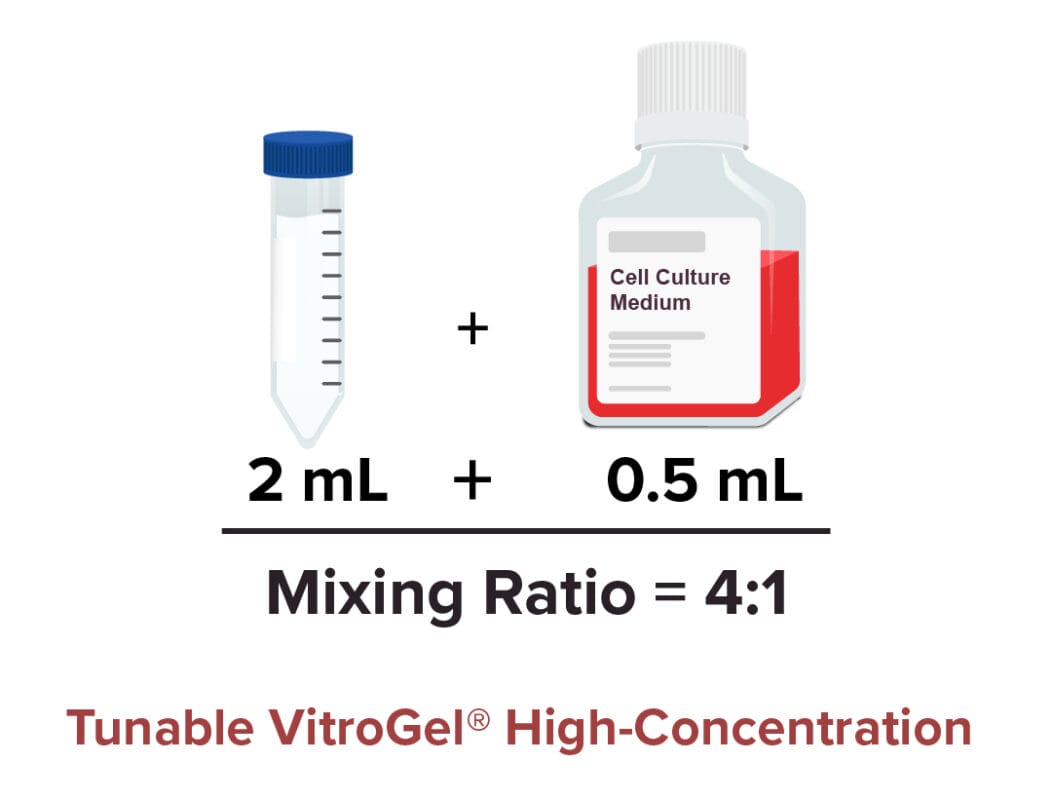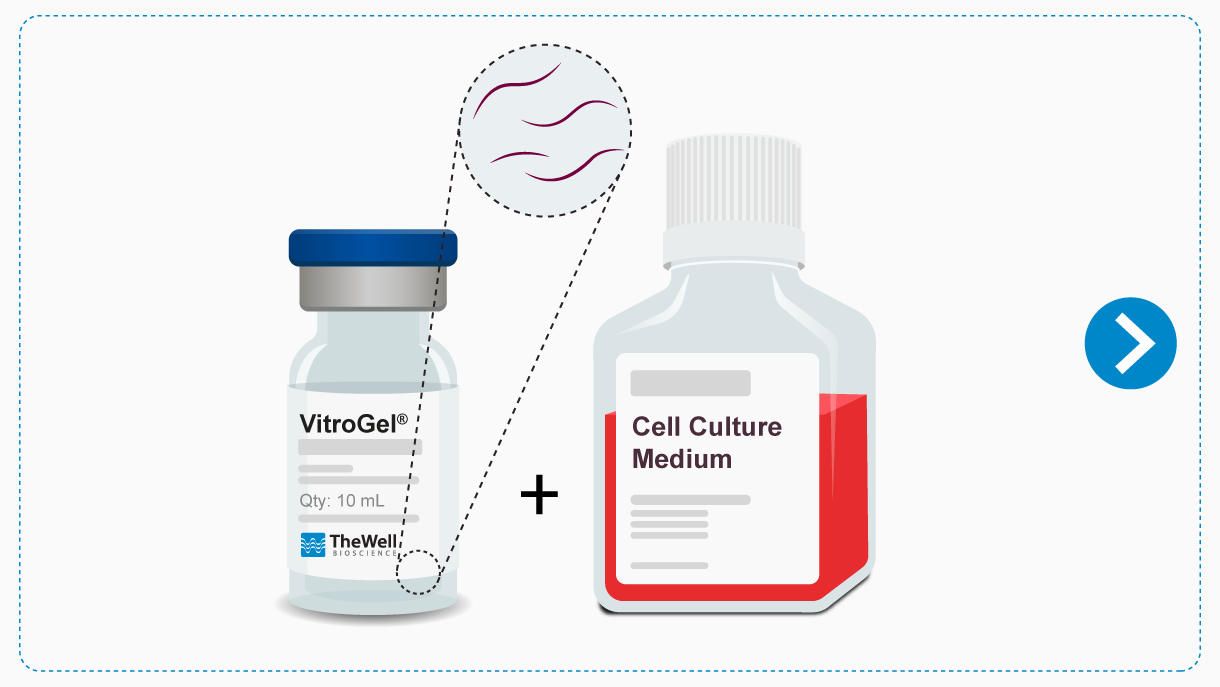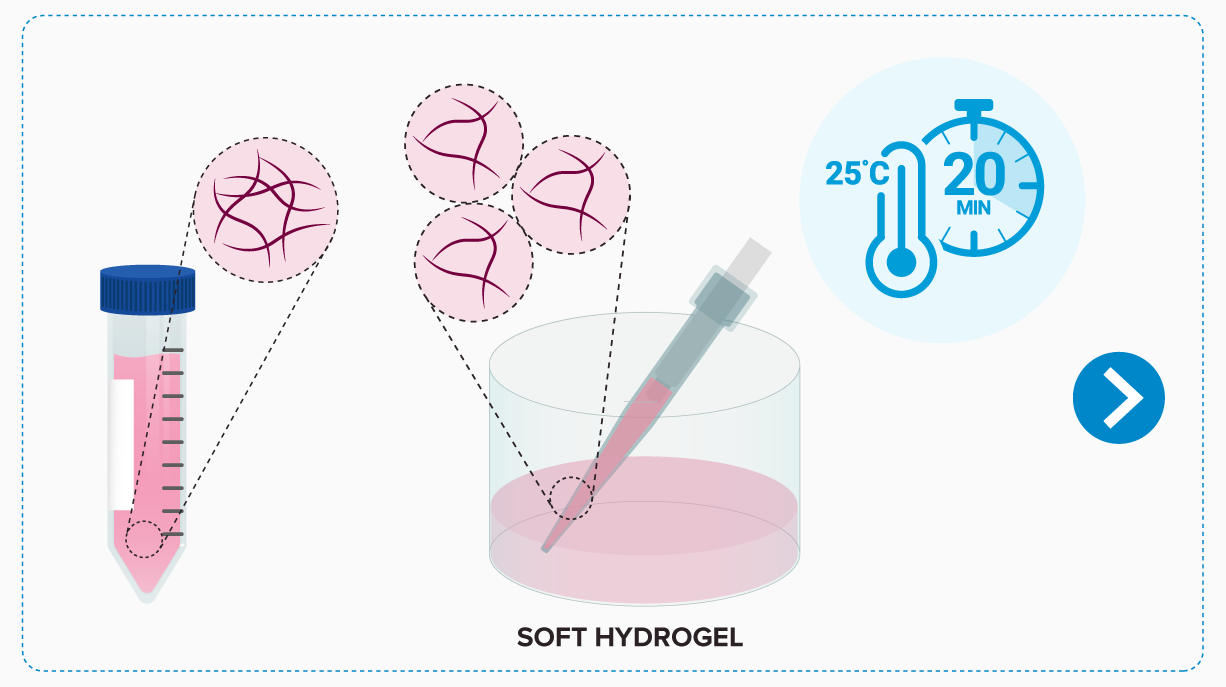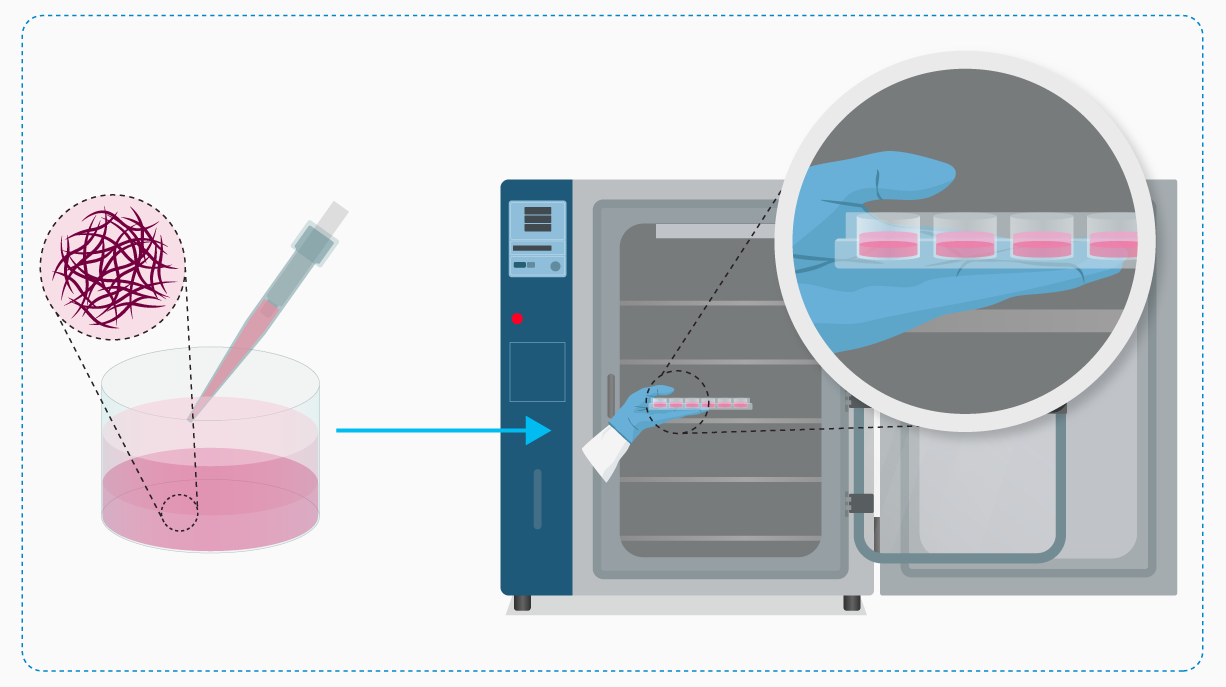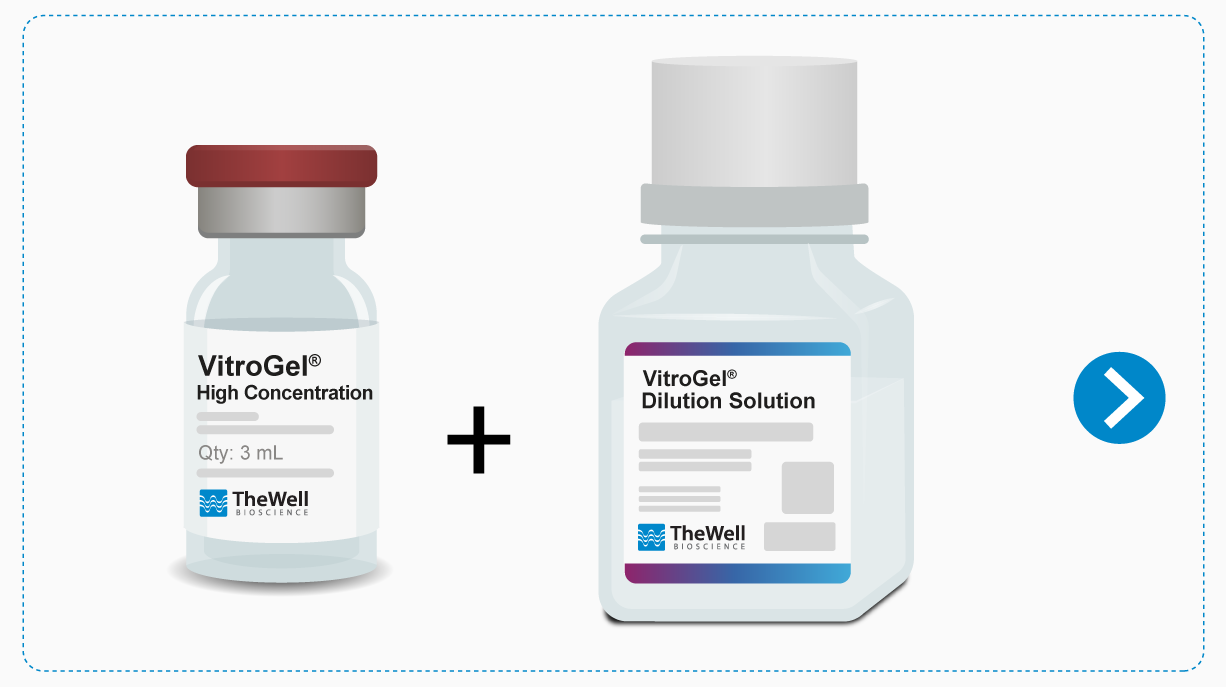How does Gelation Work in VitroGel® hydrogels?
Work confidently at room temperature. VitroGel® is liquid at room temperature and hydrogel polymerization is not temperature-dependent and does not require a cross-linking reagent.
For a typical cell culture application, VitroGel® goes through the following two stages of the gelation process:
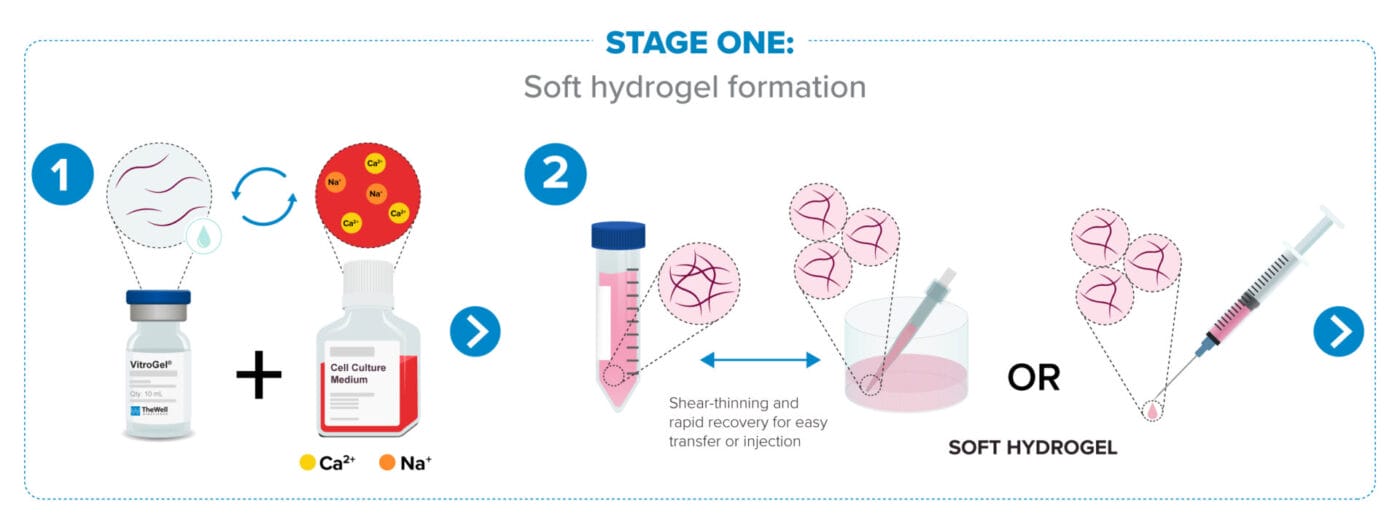

Initiate the Gelation
The VitroGel® solution is room temperature stable and free-flowing. Hydrogel gelation/ formation starts by mixing the VitroGel® solution with the cell culture medium. Hydrogel molecules interact with ionic molecules such as Ca2+ and Na+ from the cell culture medium, forming the matrix structure (hydrogel).

Soft hydrogel formation / Injectable
When a small amount of ionic molecules is used, the process of hydrogel formation is slow. At this stage, the hydrogel is soft and possesses a shear-thinning and rapid-recovering mechanical property, which makes it easy to transfer to a culture plate or use for injection.
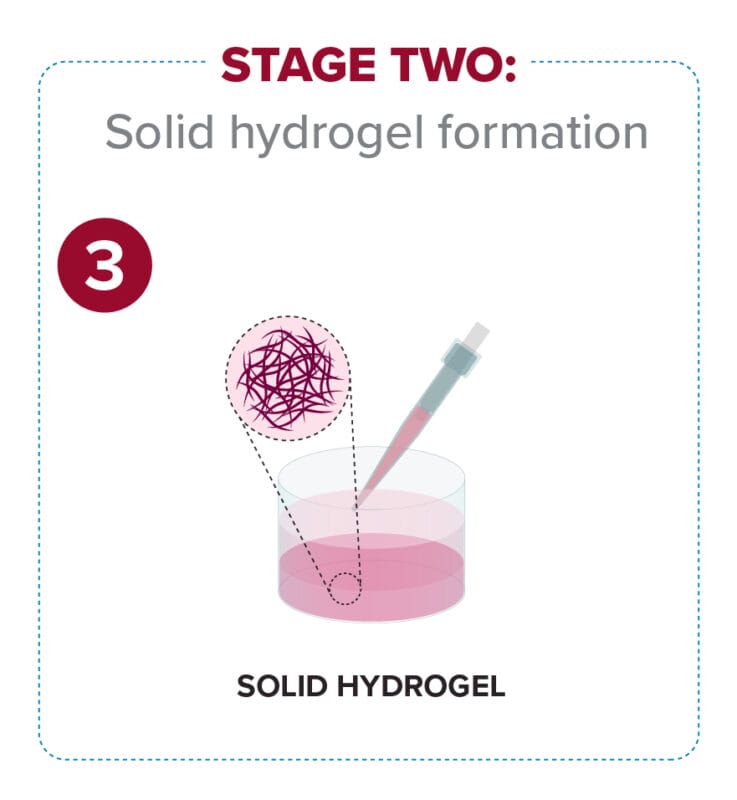

Forming a solid hydrogel with a cover medium
After soft hydrogel formation, adding an additional cell culture medium on top of the hydrogel would allow more ionic molecules to penetrate the hydrogel matrix and further saturate the hydrogel cross-linking. A solid hydrogel would form during this process.
How to Prepare VitroGel®
1. There are two types of VitroGel®
Ready-to-use VitroGel® (blue cap)
Directly mix the hydrogel solution with cell culture medium. No dilution (concentration adjustment) needed.
Tunable VitroGel® High-Concentration (red cap) and comes with Dilution Solution
First, dilute the VitroGel® High-Concentration hydrogel with VitroGel® Dilution Solution to a desired concentration, then mix the diluted hydrogel solution with cell culture medium.
2. Understand the following concepts:
DILUTION RATIO (for tunable VitroGel® High-Concentration Hydrogel only)
The volume ratio between the hydrogel solution and the dilution solution (the dilution solution could be our default VitroGel® Dilution Solution or DI water or any solution with no or ultra-low salt concentration). For example, in our standard protocol, a 1:3 dilution ratio means 1 mL VitroGel® High-Concentration Hydrogel solution diluted with 3 mL of VitroGel® Dilution Solution.
The dilution ratio is not a dilution factor.
- Dilution ratio = volume of high-concentration gel solution : volume of dilution solution
- Dilution factor = volume of high-concentration gel solution : total volume (volume of high-concentration gel solution + volume of dilution solution).
MIXING RATIO (for ready-to-use VitroGel® and tunable VitroGel® High-Concentration Hydrogels)
The volume ratio between the hydrogel solution and the cell culture medium that triggers the gelation process.
- For the ready-to-use VitroGel®, we recommend 2:1 mixing ratio between the hydrogel solution (e.g. 2 mL) and cell culture medium (e.g. 1 mL)
- For the tunable VitroGel® High-Concentration after diluting the high-concentration hydrogel with the VitroGel® Dilution Solution, we recommend 4:1 mixing ratio between the diluted hydrogel solution (e.g. 2 mL) and cell culture medium (e.g. 0.5 mL).
3. Learn the process of how to prepare VitroGel® for 3D cell culture.
Ready-to-use VitroGel®
Tunable VitroGel® High-Concentration
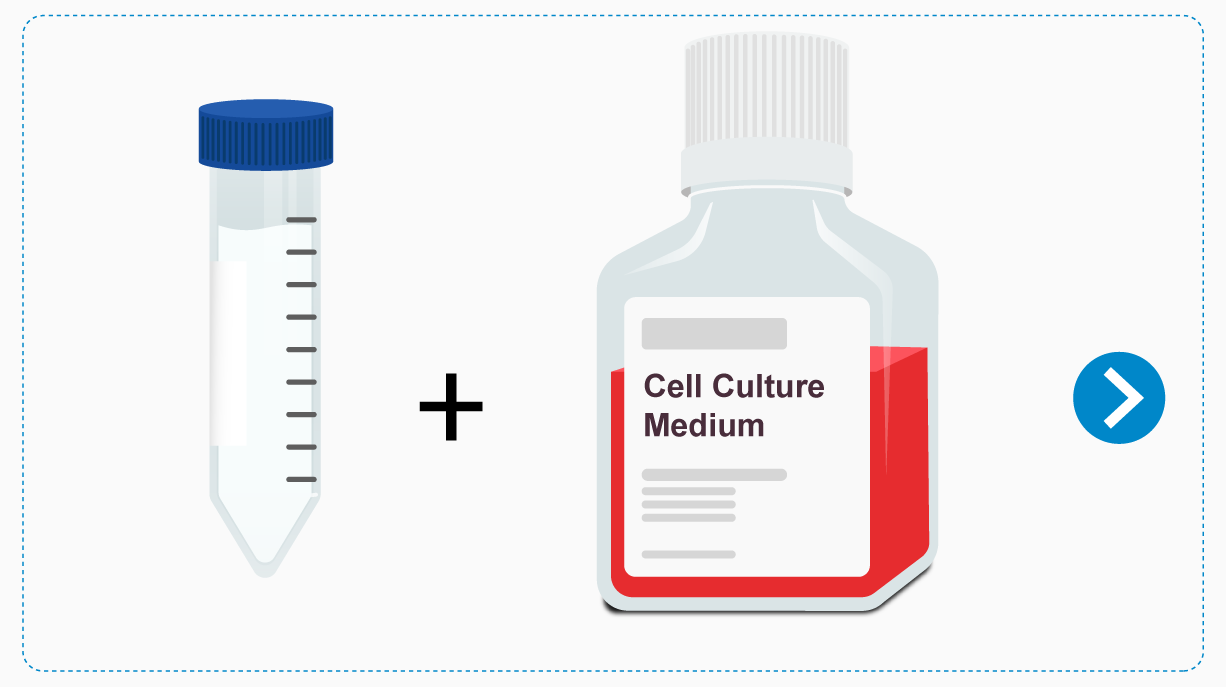

Mix the diluted VitroGel® hydrogel solution with cell culture medium at 4:1 mixing ratio.
Technical Tips
Without mixing with the cell culture medium, adjusting the temperature will only change the viscosity of the hydrogel solution but will not trigger the hydrogel crosslink. At this point, warming up the hydrogel solution will reduce its viscosity.
After mixing hydrogel solution with cell culture medium to trigger the gelation process, the gelation is faster at a lower temperature and slower at a warm temperature. Therefore, to ensure a smooth hydrogel formation, incubate soft hydrogel at room temperature for 10-20 min (recommended). If a shorter gelation time is needed, incubate the soft hydrogel at 4°C. If the soft gel is incubated at 37°C, it may take a much longer time for the soft hydrogel to form.
Use the cell culture medium at 1X salt concentration to mix with hydrogel solution. You don’t need to prepare a medium with 3X or 5X salt concentration, which may interrupt the gelation process.
If using a cell culture medium with low salt concentration (e.g. RPMI), adjusting the mixing ratio from 2:1 to 1:1 (for ready-to-use hydrogel) or from 4:1 to 2:1 (for high-concentration hydrogel) can help to accelerate the soft-hydrogel formation.
- For more details, please refer to:
FAQ section↗
VitroGel® technical guide↗
VitroGel® is ready for injection after the soft hydrogel formation. To accelerate the soft hydrogel formation and ensure the homogeneous cell suspension within the hydrogel matrix, the hydrogel-cell mixture can be incubated at 4°C or in an ice bucket for 5-10 min for a higher viscosity. The soft VitroGel® performs a unique shear-thinning and rapid recovery rheological property, leading to a smooth injection process and high cell retention rate without clogging the needle or causing the leaking.
Learn more about the injectable properties of VitroGel®↗.
Before mixing with hydrogel solution, we recommend preparing the cell suspension in a complete medium with 3X to 5X of key supplement concentration (such as key growth factors, small molecules, FBS, etc.). By using our standard mixing ratio at 2:1 (for ready-to-use VitroGel®) or 4:1 (for high-concentration VitroGel®), the initial supplement concentration in cell suspension will be reduced to 1/3 or 1/5 after the mixing.
Therefore, preparing the cell suspension with 3X to 5X of supplements will ensure cells adapt to the new microenvironment smoothly. On the other hand, the medium used to cover the hydrogel (cover medium) or refresh the cover medium can be a regular complete medium with 1X supplement concentration.



